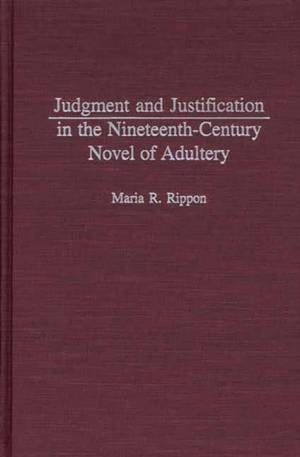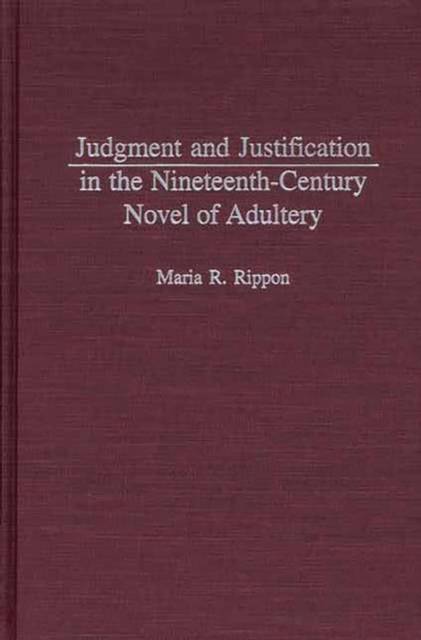
Bedankt voor het vertrouwen het afgelopen jaar! Om jou te bedanken bieden we GRATIS verzending (in België) aan op alles gedurende de hele maand januari.
- Afhalen na 1 uur in een winkel met voorraad
- Gratis thuislevering in België vanaf € 30
- Ruim aanbod met 7 miljoen producten
Bedankt voor het vertrouwen het afgelopen jaar! Om jou te bedanken bieden we GRATIS verzending (in België) aan op alles gedurende de hele maand januari.
- Afhalen na 1 uur in een winkel met voorraad
- Gratis thuislevering in België vanaf € 30
- Ruim aanbod met 7 miljoen producten
Zoeken
Judgment and Justification in the Nineteenth-Century Novel of Adultery
Maria R Rippon
€ 127,45
+ 254 punten
Omschrijving
The 19th century novel typically examines social problems and values. Several novels of that period treat adulterous relationships; in doing so, they consider the attitude toward adultery in particular societies. Using the adulteress as an archetypal figure of the realist tradition as a constant, this book compares and discusses six novels of adultery from around the world to show how they reflect the standards and judgments of the nineteenth century. These ethical contexts are informed by diverse philosophical systems, including Christianity, naturalism, and nihilism.
Included are discussions of Flaubert's Madame Bovary, Queirós' O primo Basilio, Tolstoy's Anna Karenin, ClarÍn's La Regenta, Fontane's Effi Briest, and Chopin's The Awakening. The book gives careful attention to the perspective of the person telling the tale in each novel, the manner in which consciousness is portrayed, and the way in which events are witnessed, to demonstrate that the judgments made upon the erring wives stem from the ethics of hypocritical societies. While some authors are more authoritarian than others, all make their judgments known, and adultery is shown to be neither an escape nor a liberation for women but an ailment caused by their arranged marriages, romantic ideals, and lack of education.Specificaties
Betrokkenen
- Auteur(s):
- Uitgeverij:
Inhoud
- Aantal bladzijden:
- 176
- Taal:
- Engels
- Reeks:
- Reeksnummer:
- nr. 112
Eigenschappen
- Productcode (EAN):
- 9780313321641
- Verschijningsdatum:
- 31/03/2002
- Uitvoering:
- Hardcover
- Formaat:
- Genaaid
- Afmetingen:
- 158 mm x 242 mm
- Gewicht:
- 430 g

Alleen bij Standaard Boekhandel
+ 254 punten op je klantenkaart van Standaard Boekhandel
Beoordelingen
We publiceren alleen reviews die voldoen aan de voorwaarden voor reviews. Bekijk onze voorwaarden voor reviews.









